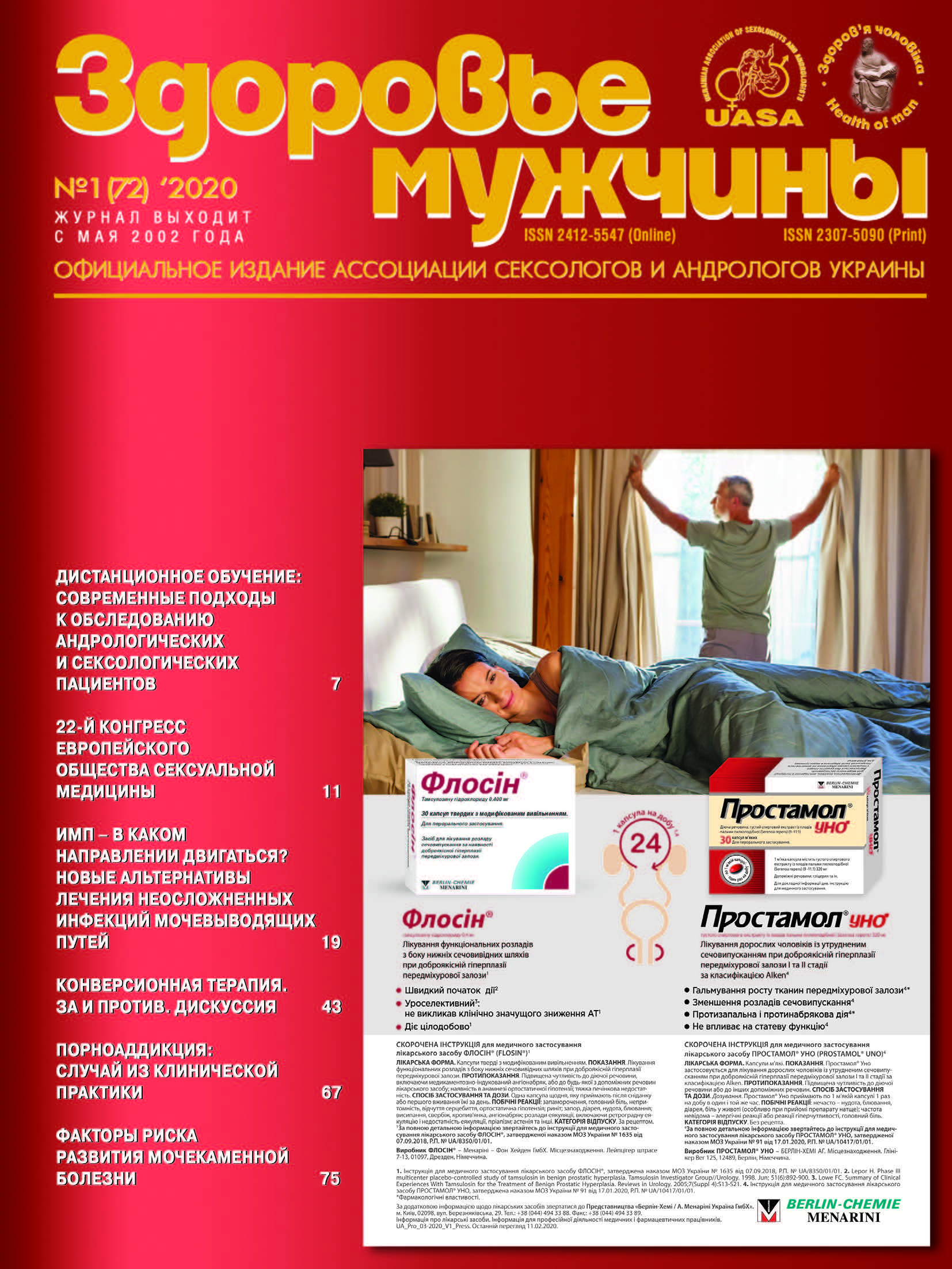Application of Autodermoplasty for Gunshot Injury of Penis and Scrotum at the Specialized Level of Medical Care (Clinical case)
##plugins.themes.bootstrap3.article.main##
Abstract
##plugins.themes.bootstrap3.article.details##

This work is licensed under a Creative Commons Attribution 4.0 International License.
Authors retain the copyright and grant the journal the first publication of original scientific articles under the Creative Commons Attribution 4.0 International License, which allows others to distribute work with acknowledgment of authorship and first publication in this journal.
References
Janak, Judson C., et al. «Epidemiology of genitourinary injuries among male US service members deployed to Iraq and Afghanistan: early findings from the Trauma Outcomes and Urogenital Health (TOUGH) Project». The Journal of urology 197.2 (2017): 414-419.
Balzano, Felicia L., and Steven J. Hudak. «Military genitourinary injuries: past, present, and future». Translational andrology and urology 7.4 (2018): 646.
Banti, Matthew, and Jack Ryan Walter. «Genitourinary Trauma». Managing Dismounted Complex Blast Injuries in Military & Civilian Settings. Springer, Cham, 2018. 151-158.
Summerton DJ, Djarovic N, Kitrey ND, et al., eds. Guidelines of Urological Trauma. EAU, 2014. 76 p.
Battaloglu E., Figuero M., Moran C., Lecky F., & Porter K. (2019). Urethral injury in major trauma. Injury, 50(5), 1053-1057.





